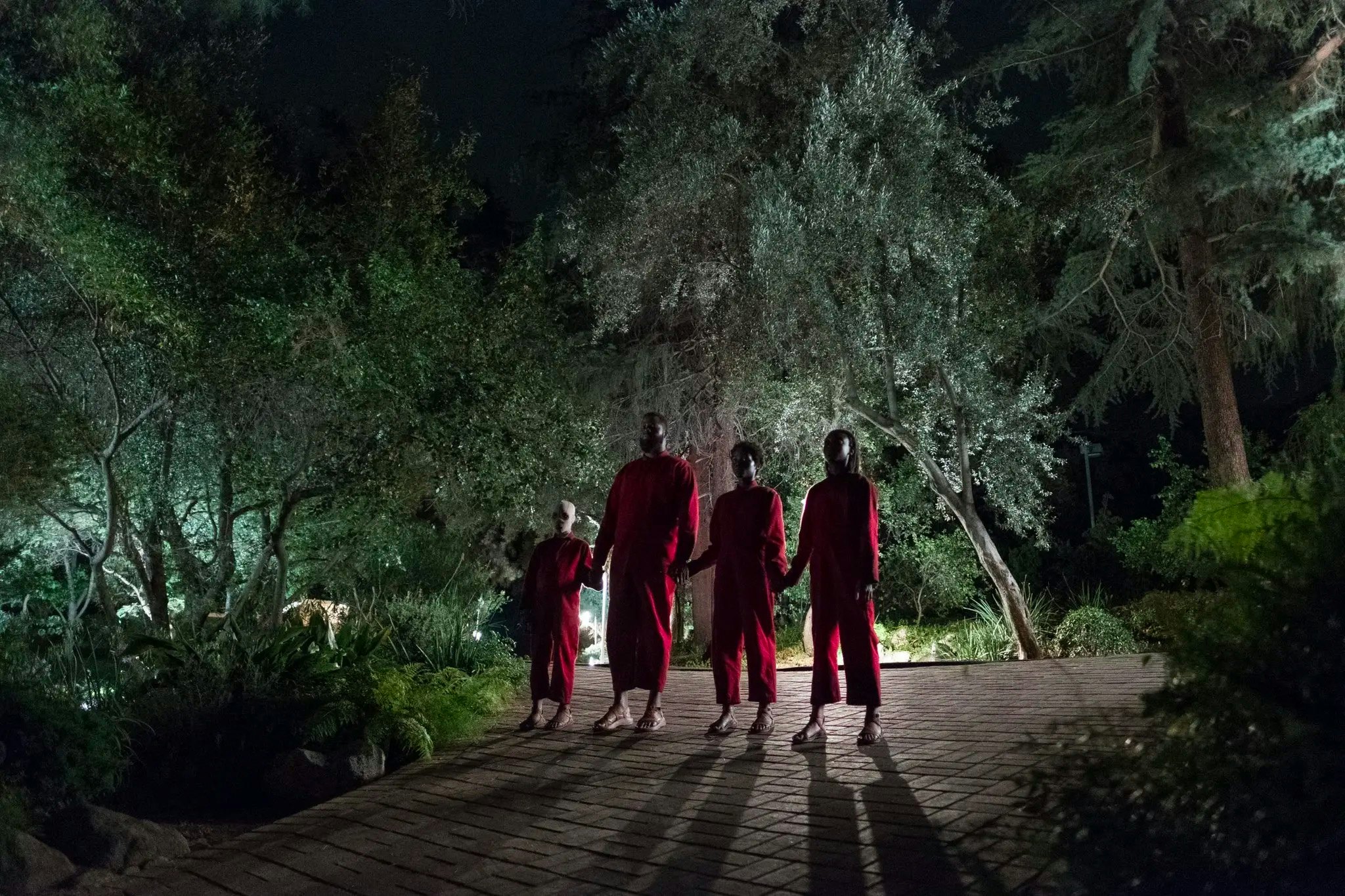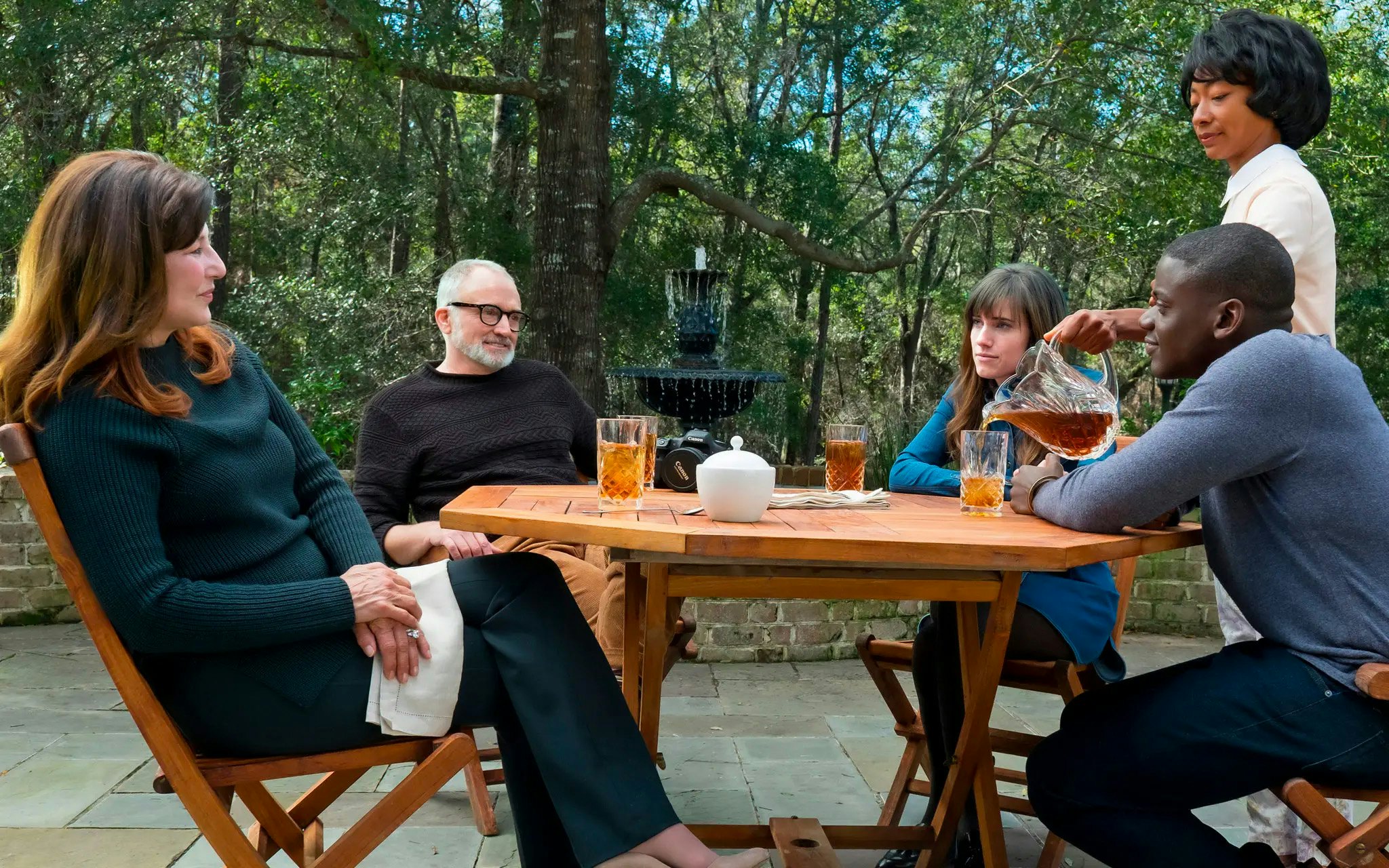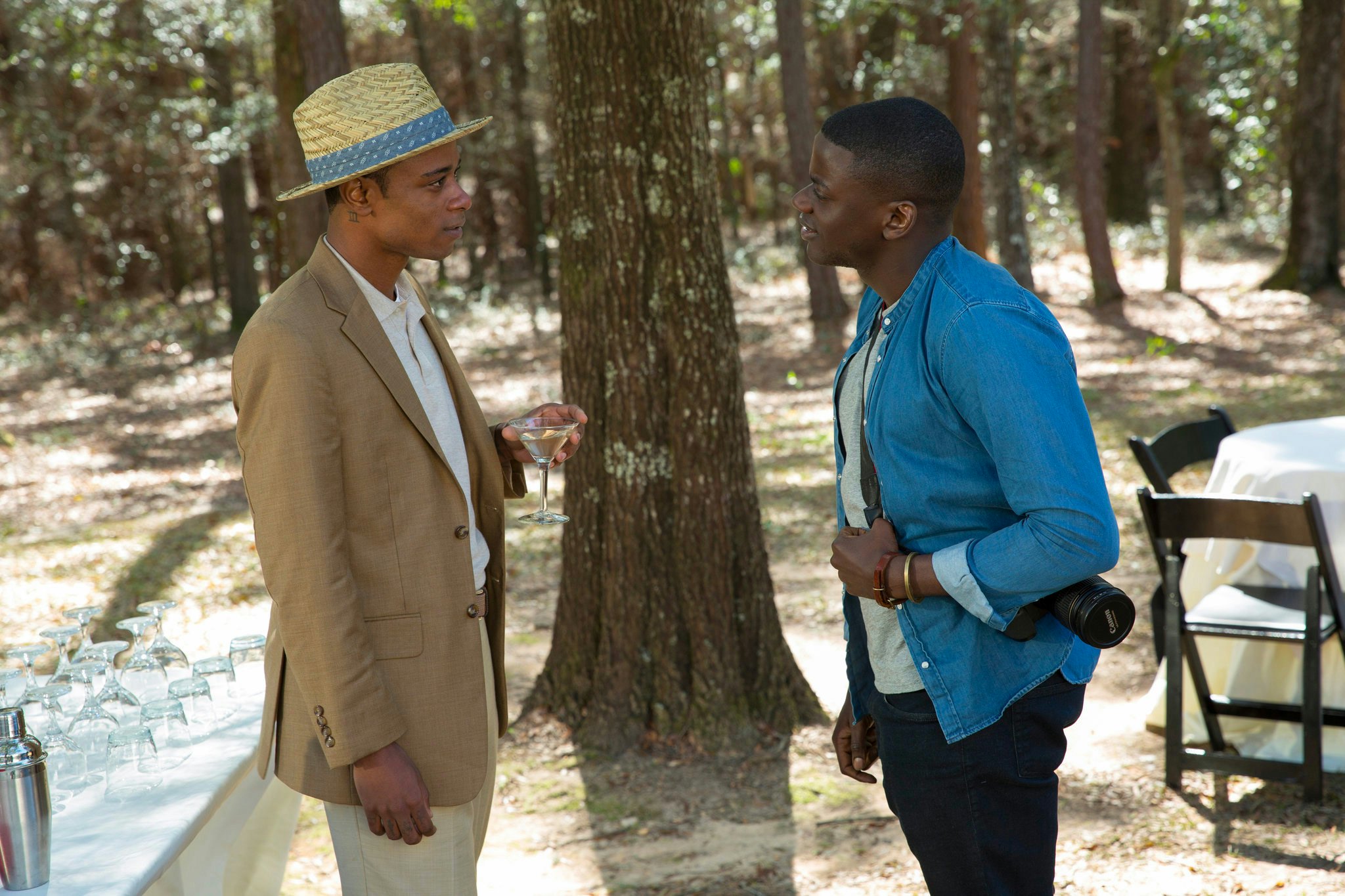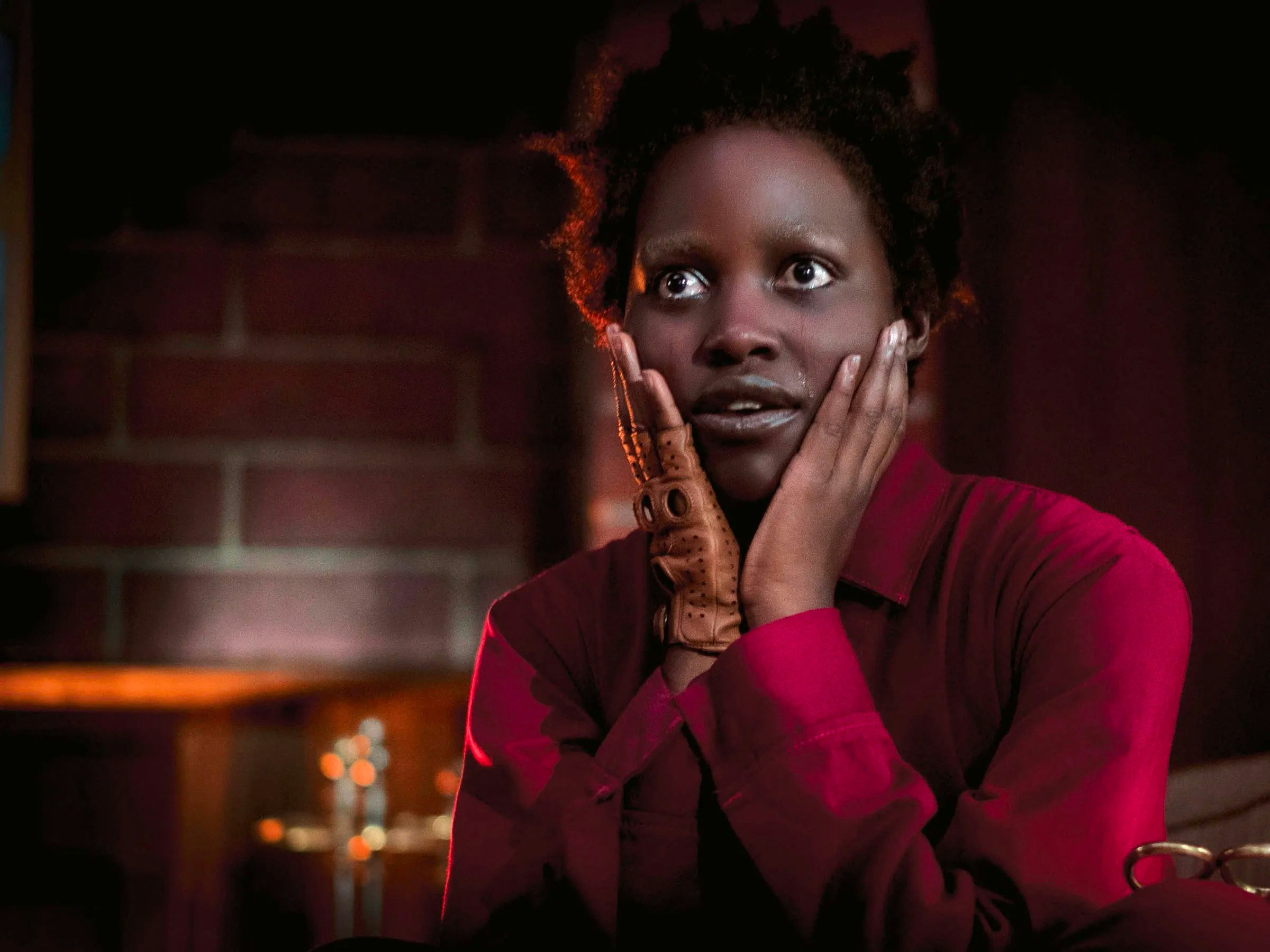
By 2019, Jordan Peele was an auteur on par with Alfred Hitchcock or The Twilight Zone’s Rod Serling. His directorial debut, Get Out, had been declared a new modern horror classic. And his follow-up Us, was one of the most highly anticipated movies of that year, its lead-up positively littered with theories attempting to connect the two films. In our IP-obsessed new era, it was natural to assume that there’d be some overlap, or some semblance of a shared universe.
Of course, once Us did hit theaters, only a handful of surface-level similarities prevailed. Peele has since admitted that both films could, in a way, occupy the same universe. (And what an absolutely bonkers universe that’d be.) But apart from the director’s name attached to either film, and the role that each had in normalizing Black protagonists in genre spaces, Get Out and Us don’t seem to have all that much in common. Of course, that’s a good thing: that Peele was able to produce two narratively-unique films within two years is, by all accounts, a marvel. Put his first two films do actually share a surprising thread, one that’s become a thesis of Peele’s filmography, and gone on to influence a new era of horror filmmaking.
Debunking “Post-Racial America” with Get Out

Get Out has since become the quintessential horror-thriller about race. Per Peele, race and racism have never directly informed a horror film, but the filmmaker clearly wasn’t satisfied with a surface-level exploration of such a pervasive and stubborn ethos. By centering the conflict of his debut film on the more subversive side of American culture, Get Out targets the little-explored phenomena of benevolent racism. It borrows its initial set-up from culture-clash rom-coms like Guess Who’s Coming to Dinner, but the idea of a Black everyman visiting his white girlfriend’s parents — and hoping to become “part of the family” — takes a decidedly sinister bent before too long.
Daniel Kaluuya stars as Chris, the everyman in question. His girlfriend Rose (Allison Williams) is taking him to meet her family for the first time. Her parents, neurosurgeon Dean (Bradley Whitford) and hypnotherapist Missy (Catherine Keener), would be painfully familiar to any person of color who grew up in a predominantly-white, neoliberal town. Their conversations oscillate wildly between casual and harmless and wincingly eager to please; after what seems like the 10th comment on the likes of Jesse Owens or Barack Obama, their weightless platitudes start to bear the familiar weight of a microaggression.

Dean and Missy’s friends, whom Chris later meets at the couple’s garden party, are a bit less subtle. They seem to fetishize Black bodies outright — and once Get Out finally reveals its shocking twist, subtext becomes text in the blink of an eye. Here Peele works to unspool one of the biggest hypocrisies fueling the culture today: racism isn’t always abject cruelty. In most cases, it’s far more subtle. It can prevail in casual stereotypes about Black male virility, or in efforts to appropriate aspects of the Black experience. While they’re often characterized as harmless, they can be just as damaging as outright violence — and more often than not, it’s perpetuated by those who would otherwise consider themselves allies.
With Get Out, Peele wanted to debunk the myth of a “post-racial” America. The Obama era seemed like a utopia on paper — after all, if a Black man can get elected to the highest office in the nation, then racism really must be solved, right? But even before Obama’s ascendancy gave way to the nationalism and bigotry of the Trump administration, racism prevailed in subtler ways — and it still exists today, in left- and right-leaning spaces.
Jordan Peele Reflects Back With Us

In Peele’s films, progress is an illusion. It’s the same in Us, though the filmmaker chose to tackle a very different presidency for his follow-up. Us opens with a retread of the Reagan-fueled fundraiser Hands Across America. It began as an effort to tackle the growing crisis of homelessness in the mid-80s — a crisis that Reagan himself set in motion. Peele explores this with the introduction of doppelgängers. Every person in the country has one, and though they’ve been corralled in tunnels that stretch for miles underground, they eventually emerge to usurp those living above. This revolution, called “The Untethering,” is led by Red (an incredible Lupita Nyong’o). She’s spent years organizing this coup, all to enact revenge on her double, Adelaide Wilson (also Nyong’o).
There’s a clear hierarchy where Peele’s filmography is concerned. Us has long been regarded as the lesser film — and admittedly, its twist is not nearly as exciting as Nyong’o’s dual performance. But it’s interesting to see how Peele addresses another great American lie through what begins as a home invasion thriller. With Us, Peele wanted to tackle the nation’s inner demons. “We are our own worst enemy,” Peele told The Guardian in 2019. “Not just as individuals but more importantly as a group, as a family, as a society, as a country, as a world.” It’s our reluctance to submit to that truth, to stare our sins in the face and own up to our shadow selves, that inspired Us — and that inspired Peele to address one of the nation’s darkest chapters.
Peele would continue exploring that topic with Nope, though he does neglect the potent themes that informed his first two projects in favor of spectacle. That’s why, even if Get Out and Us aren’t connected outright, they make a fitting double feature. Each shares a fascination with America’s dangerous dual nature — and though most have since become disillusioned with the hypocrisies keeping our society afloat, Peele’s filmography does still offer enough escapism (and a fair amount of thrills) to distract from our increasingly-dystopian reality... at least for a little while.







